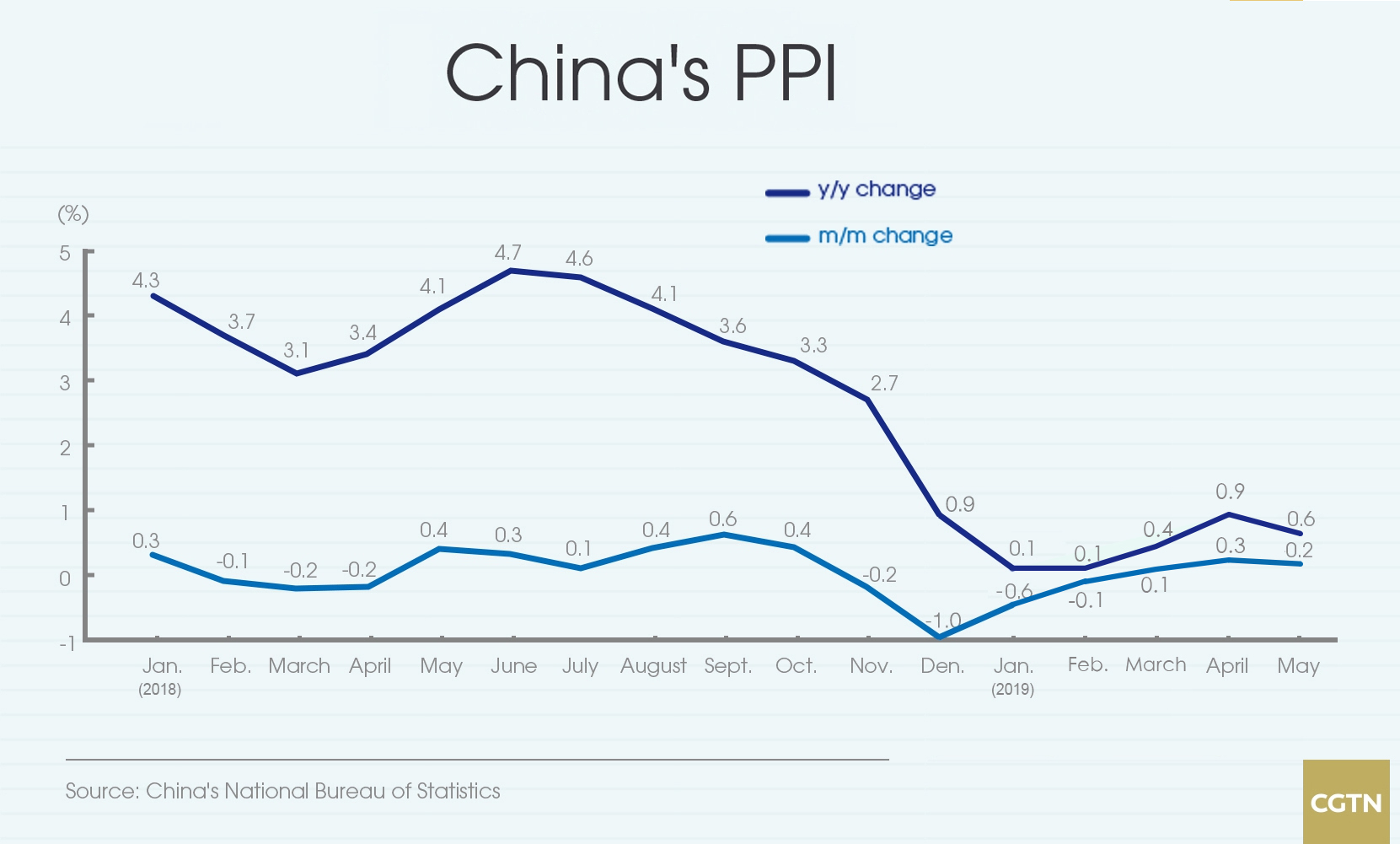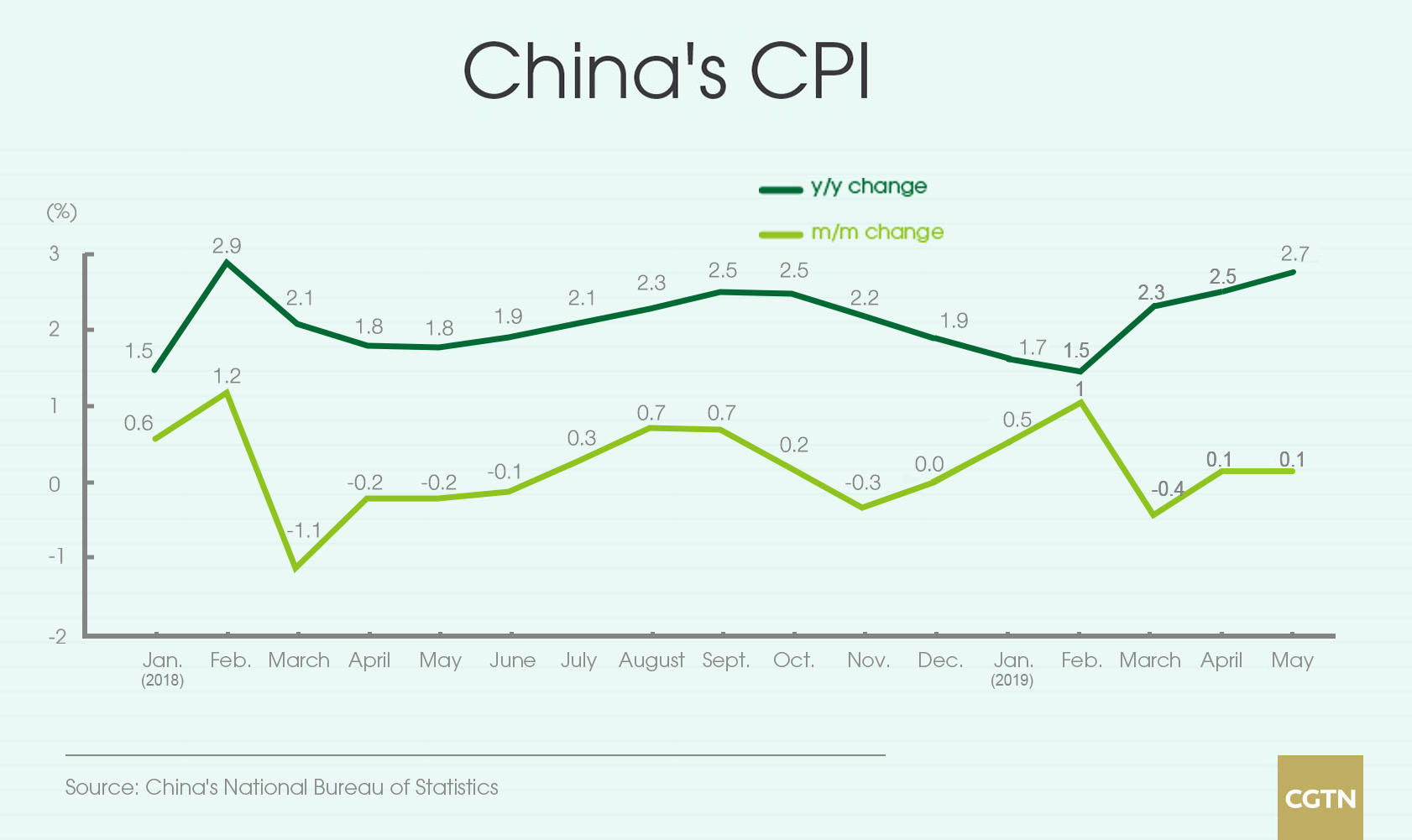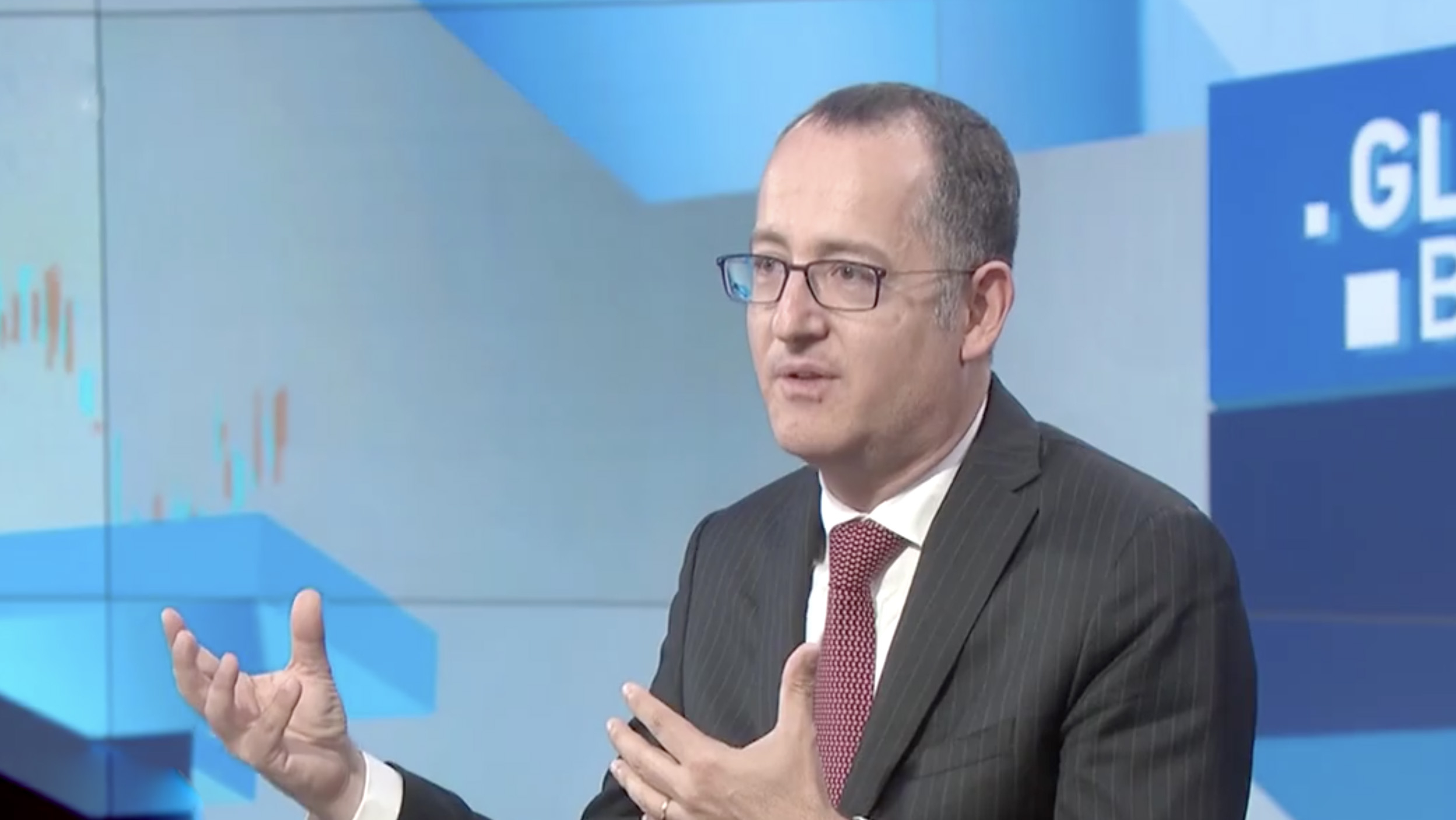
China's consumer price index (CPI) rose 2.7 percent year-on-year in May and the producer price index (PPI) increased 0.6 percent from a year ago, the National Bureau of Statistics (NBS) showed Wednesday.
Food prices gained 7.7 percent year-on-year in May, contributing 1.48 percentage points of the overall CPI's year-on-year growth. Non-food prices gained 1.6 percent, adding 1.26 percentage points to the overall CPI figure, NBS data showed.

The increase in food prices is mainly due to higher prices of fruit and vegetables which are in short supply, said NBS official Dong Yaxiu.
China's Ministry of Commerce (MOFCOM) said last month that fruit and vegetable prices were expected to fall thanks to increasing supplies in the market.

NBS data showed factory prices of production materials grew 0.9 percent year-on-year in May, down 0.6 percentage points from a month earlier.
Among major industries, oil and natural gas mining, non-metallic mineral products and oil, coal and fuel processing industries saw slower price rises in May compared to the previous year, according to the NBS.
On a monthly basis, the CPI remains flat, compared with a 0.1-percent increase last month, and the PPI rose 0.2 percent, the NBS said.
The CPI is a main gauge that examines the weighted average of prices of a basket of consumer goods and services, while the PPI measures costs for goods at the factory gate.
Consumer price in Q3 will not calm down
As the fundamentals of food and energy are likely to remain the same level in the rest of year, then the CPI figure would not calm down in the short term, according to Denis Depoux, CEO of Greater China from Roland Berger.
"Food and energy represent a significant share of consumption. CPI looks like spike and it's unlikely to change because the fundamentals on food and energy side will not change in the next six months,” Depoux explained.
Meanwhile, he said the market is looking at short-term policy response, which is encouraging consumption and is offering more supports to infrastructure.
"Because what we see today is that the rise of domestic consumption is not enough to support the overall slowdown of the economy. So what we need in term of policy response is more structural one, such as supply-side reform, killing off over-capacity and improving the industrial industry," he told CGTN.

"China is shifting from an export-driven economy to a more domestic-market-driven economy," he said.
In light of changes in China, Roland Berger advised multinationals, which used to rely heavily on export, to reposition on producing usefully and locally.
Performance improvement is also important for both multinationals and domestic companies, he added.
"So far, the typical reaction is OK. I invest more, develop new product and deploy more outlets, it will do the figures for the year. That’s changing. And the performance improvement is one of the responses. And changing the footprints and supply chains is also an immediate reaction," Depoux told CGTN.
(CGTN's Global Business also contributed to the story)

Copyright © 2018 CGTN. Beijing ICP prepared NO.16065310-3
Copyright © 2018 CGTN. Beijing ICP prepared NO.16065310-3